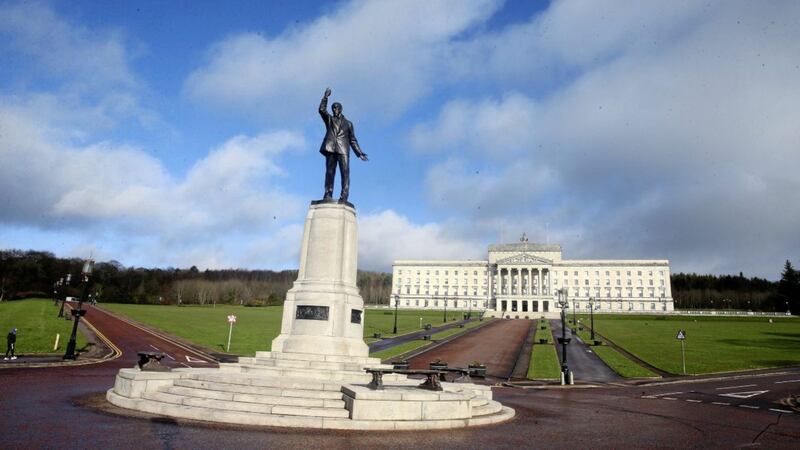The RHI inquiry is turning into a broad examination of how Northern Ireland is run. This had become its theme before Arlene Foster appeared in person and her testimony has only broadened it.
Foster spoke positively at the inquiry about the North-South Ministerial Council, saying that even “as a unionist” she recognised the “realpolitik” and relationship-building it advanced behind the scenes. Following the council’s collapse along with Stormont, Foster said she has had more engagement with British ministers than ever before.
So is the DUP-Tory deal really blocking British-Irish cooperation to restore Stormont, as nationalists and many others assume?
London’s refusal to convene a British-Irish Intergovernmental Conference despite Dublin’s pleas has gone from puzzle to embarrassment - this week the taoiseach proposed a new post-Brexit forum of British and Irish ministers, only to be snubbed with silence.
It is starting to look as if Brexit is the sole problem, with London viewing Dublin as too much of a negotiating opponent to work with on anything else. Until that is resolved, the question of running Northern Ireland will just have to wait.
**
Having previously implied at the inquiry that Sinn Féin and DUP ministers objected to notes being taken at meetings, the head of the civil service David Sterling has confirmed no Sinn Féin minister ever gave such an order. Arlene Foster has told the inquiry no DUP minister did the same. Whatever approach to transparency either party favoured at Stormont, it is worth repeating that a civil service culture of informal chit-chats instead of minuted meetings was increasingly evident during the five-year period of direct rule from 2002, shortly after the introduction of the Freedom of Information Act. The mandarins were most motivated to go off-record when they ran Northern Ireland on their own.
**
BEFORE an embarrassing U-turn, we were told earlier this week that only British passport holders could apply for post-Brexit Border Force jobs, as they were specially reserved occupations requiring “special allegiance to the Crown”.
The actual requirement is for UK citizenship but applicants are asked for a passport as proof, raising the quantum physics-like nature of citizenship in this part of the world.
Almost everyone in Northern Ireland is simultaneously a British and Irish citizen by birthright and it is only observing their passport that collapses this duality into one state or the other.
One way around what looks in this case like a breach of the Good Friday Agreement would be to only ask applicants for their birth certificate.
**
The new PSNI-led Paramilitary Crime Task Force has issued a rather strangulated statement following raids last weekend linked to an investigation into the INLA.
At a press conference the same day, assistant chief constable Stephen Martin said: “There has been a misconception in some quarters that the work of the Paramilitary Crime Task Force is focused only on loyalist paramilitaries. Today's policing activity clearly demonstrates that our work is to remove paramilitarism from all our communities.”
Meanwhile, officials have revealed that just half of the £80 million Social Investment Fund has been spent. Presumably halves of that went to each ‘community’. Hence it might seem mysterious that another £25 million was given to the fund in last November’s direct rule budget but of course it is no mystery at all. Under the 2015 Fresh Start agreement, the fund was specifically the carrot to the stick of the Paramilitary Crime Task Force, launched last October. More stick requires more carrot and halving the carrot requires equal use of the stick, as per the assistant chief constable’s assurance.
**
The latest official figures show Northern Ireland’s unemployment rate has fallen to 3.5 per cent, causing Ulster Bank’s economist to declare we are “effectively at full employment.”
‘Full employment’ has a limited technical meaning in economics. Most people with any connection to the issue are aware it neither accounts nor pretends to account for low wages, bad jobs or how many adults have stopped seeking work entirely - all critical problems in Northern Ireland. So the allergic reaction the phrase produced from some campaign groups and activists was completely over the top. ‘Full employment’ may only merit a qualified welcome but it is good news nevertheless and implies no judgment on those the job market still fails. For people my age and older, the end of mass unemployment in Northern Ireland can still feel like a miracle.
newton@irishnews.com









